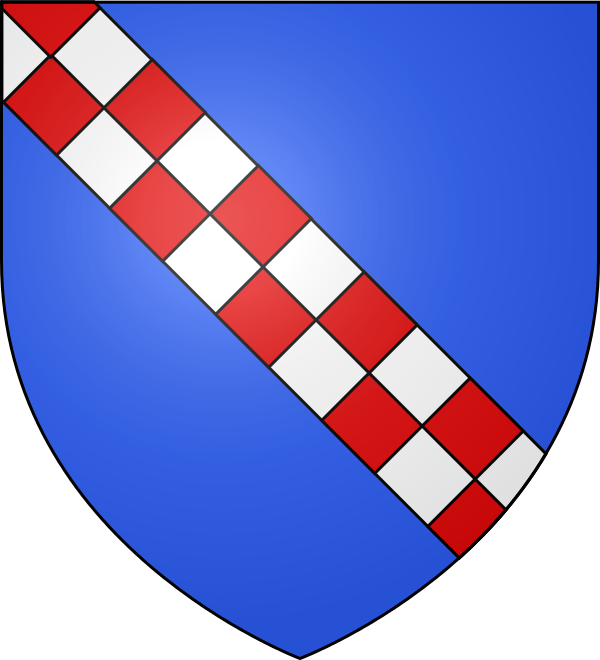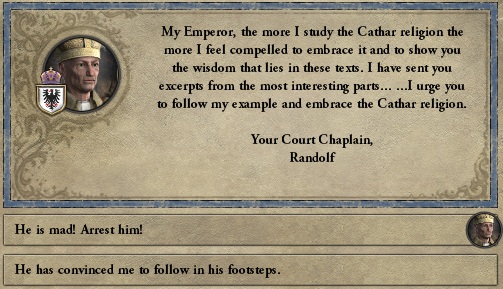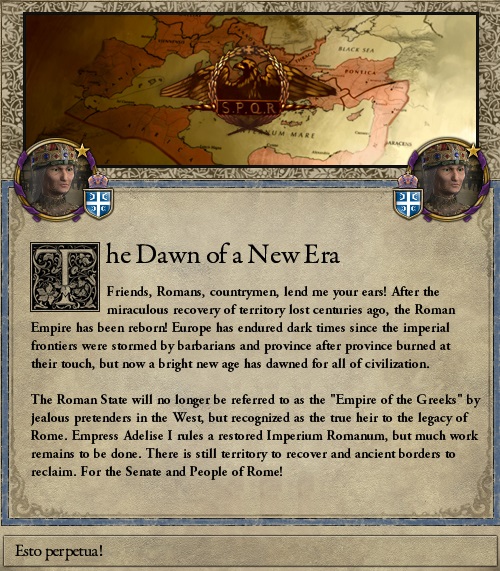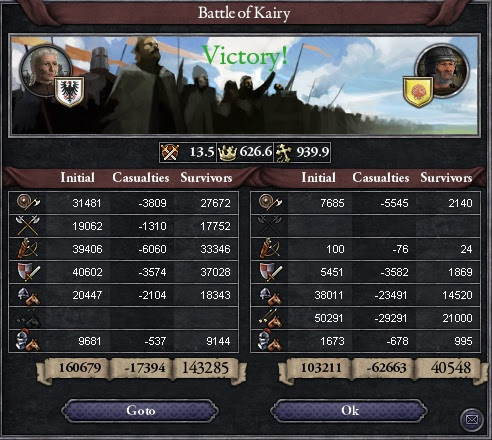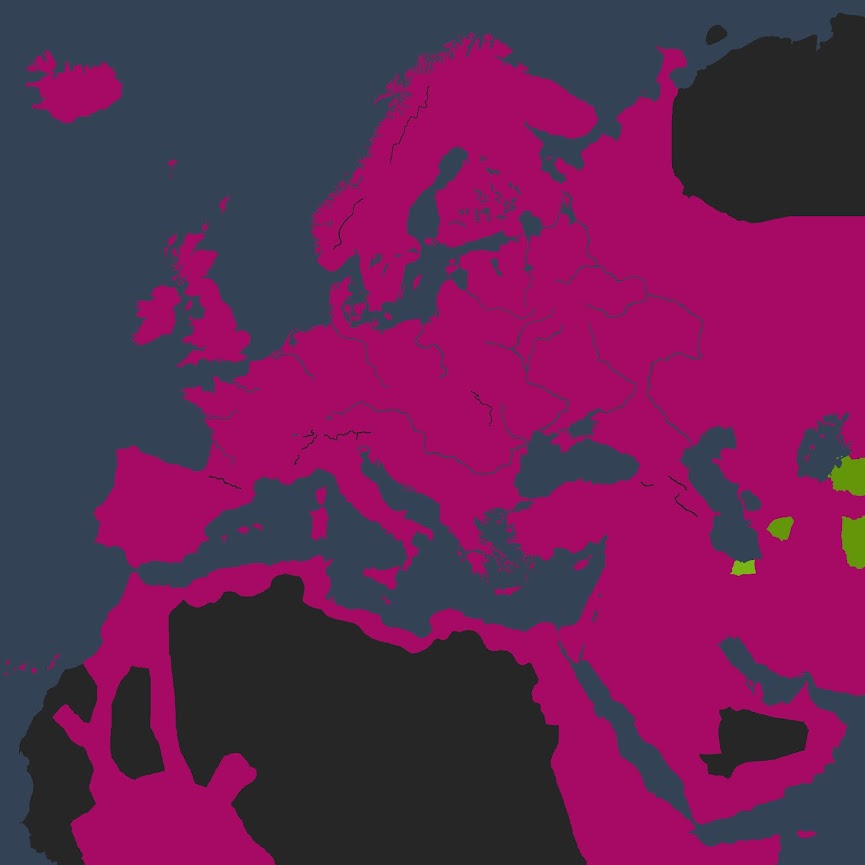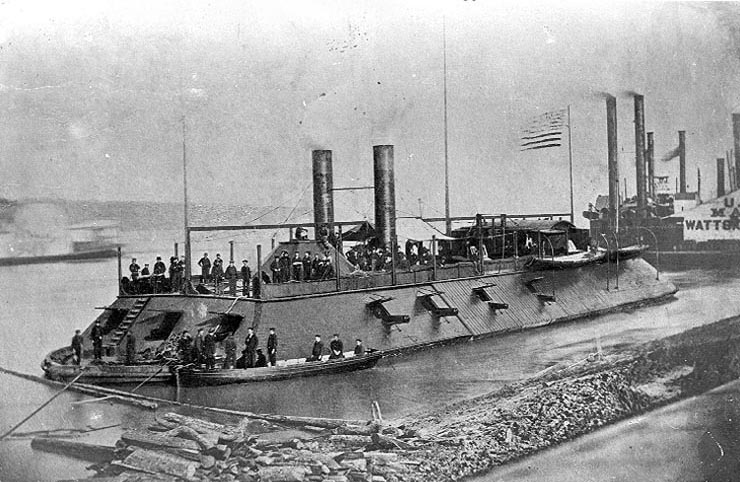How the Hautevilles Came to Be
Great things always start small, minor and insignificant. And most small, minor and insignificant things never grow to be great things. But sometimes, all you need is an opportunity, some determination and a spark. Then minor things grow and suddenly, everyone looks back and wonders how we didn’t see that coming. It was obvious, after all. From a hindsight at least.
Rise of the Normans
It wasn’t so obvious in Southern Italy, more then 1000 years ago. During the beginning of 11th Century. Normans joined the conflicts between Lombards, Arabs, Byzantine Empire and Papal State. As mercenaries. Of them, 12 sons of Tancred de Hauteville, a minor noble in Normandy, managed to gain more power then anyone else- and soon, instead of becoming mercenaries, they became lords and landowners in Southern Italy, fighting now for themselves, instead of their masters.
Soon, the Normans started to extend their influence. Robert Guiscard himself took Palermo, his son, Bohemond I (1074-1115), crowned himself a King and took rest of Sicily.
Bohemond, the first Hauteville King
Grandson of Bohemond, Asclettin the Great (1126-1161) is to this date, one of the most fondly remembered Hauteville rulers. Mostly because he won a war lasting a decade against the Caliphate, the most powerful nation at the time, weakening the enemy greatly. Then, he took the fight to them and took first Galilee and then Jerusalem from Muslims. Grandson of Asclettin, another Bohemond (1161-1193), finished the conquest of Jerusalem, created Kingdom of Jerusalem and then, created Hauteville Empire. Though overall conclusion was though that “not as great as Asclettin”
Asclettin, finishing off the First Crusade
Turquetil I (1197-1244) made one change that forever changed the fate of Norman Empire and rest of the world. He adopted Catharism, becoming a heretic and outcast in the Catholic world. And then, he went on spreading the faith. His vassals succumbed easily, his population too and by the time he died, Normans had not taken only the entire coast of North Africa, but also almost controlled the Mediterranean coast from Iberian Peninsula to Byzantine holdings. And of course, the City of Rome.
The fateful decision
Adelise I (1245-1304) is the most celebrated ruler of the Normans. Alongside with Asclettin of course. During her time, Normans took England, half of France, Hungary and countless other countries. Turquetil ended with 4 Kings as vassals. Adelise ended with 21. But this is not why she is remembered. No, she had two special feats. First, she destroyed the Horde of the Golden Horde in battle of Kairy, destroying the plague that threatened Europe. Second, she managed to get herself elected as the Basilissa of the Byzantine Empire (and by managed, i mean murdered her way through). A few month later, she recreated the Roman Empire.
She also changed the succession of Hauteville Empire to elective and allowed women much more power then they used to have.
Two main feats of Adelise.
Sayer I (1304- 1349) was a grandson of Adelise. By the time he came to power, Normans had conquered about half of the known world. It had taken them two and half centuries. During his 45 years in power, Sayer I took the other half. By the time he was finished, there were only 5 provinces of the known world that were Norman. His son, Joscelin I, took over and by 1350, Normans were masters of the known world.
Sayer I did almost manage to get the world
Expansion of the Normans
Emphasis on the “known world” part though. While Hautevilles might be the absolute rulers of Europe and Near East, there was still rest of the world, woefully free of Norman influence. Well, the Hautevilles were not ones to be discouraged by that and bravely went to explore and conquer brand new lands. And since they already controlled Persia, the next target was obvious- India. For the next century, Normans fought there, claiming one province after another. Same time, Normans moved on towards Africa, though there, tropical climate was more of an obstacle then the local tribes.
India was conquered by 1463. At the same time, Emperor Asclettin II dismantled the Roman Empire and once again took the title of Hauteville Empire. The reason was simple- this was no more Roman Empire then they Holy Roman Empire was. Normans were not Romans, there were no Legions, no-one was wearing togas and apart from half-hearted attempts to adopt more Roman outlook, the Normans remained Normans. But mostly because Hauteville Empire had dwarfed the Romans.
The whole 16th Century was seeing results of Norman explorers- trying to find the western way to China and discovering two new continents in the progress. Normans spent a happy century, colonizing and conquering. At the same time, Normans finalized the conquest of Africa, advanced themselves towards Siberia and moved north and east from India.
First Normans arriving in America
China was one of the final targets. Along with the Korea- they were taken in series of wars in 17th Century. The business as usual- some welcomed their new overlords, some resisted, most were indifferent. At least, the people were not forced to work on a wall no more- like some wall could stop Norman cannons. Oh yes, cannons, for Normans were not standing still. By the end of conquest of India, the things that made Normans great during Medieval Ages, heavy knights with lances, were just a part of romantic history. When the conquest of China begun, cannons, foot soldiers armed with rifles and light cavalry was now the mainstay of Norman forces. At the same time, Normans discovered and colonized the last continent, Australia.
The final nation on Earth that was still free was Japan. Island nation that understood the most basic thing- in order to remain independent, one has to have control of the seas. So, Japan had built a wooden wall around their island. The thing is, wooden wall became outdated when in 1809, Norman fleet led by the Emperor Robert IX de Hauteville, attacked Japan. Not an ordinary fleet though, rather, a fleet powered by steam and with ships clad in iron. Impervious to attacks from Japanese fleet, not dependent on wind and with powerful cannons and rams, the Japanese fleet stood no chance. Disheartened by the defeat, the nation surrendered. De Hautevilles finally ruled the world!
Towards Japan!
Changes in the Hauteville Empire
Of course, the Hauteville Empire in the 12th Century was something completely different from the Hauteville Empire in the 22th Century. Changes were gradual though and are a good example of old feudal system transitioning into modern society. Well, in case of Earth, it is the only example.
Feudal society remained in place for most of the Norman conquests. Vassal Kingdoms and Free Cities under Emperor, while the Emperor controlled only Sicily directly. It seemed to work. Though the power of vassals was different- from Kingdom of Navarra, just a few provinces, to Kingdoms of Egypt and Persia and others, one thing was clear- Emperor was still the most powerful. And surprisingly, this system kept on working without much flaws. There were rebellions, but they were rebels going against Norman rule, not Normans rebelling against their Emperor. And for an Empire where the sun never sets, strong local rulers who are able to adapt quickly to changing conditions is much better then centrally managed system. Still, the rule of an Emperor was absolute. He just wasn’t there most of the time...
When the telegraph was invented in 1789, it all changed though. In a decade, the whole Norman lands (or basically, whole Earth) was covered with network of wires. Underwater cables through the oceans, wires across the great mountains and endless deserts. The news that took weeks, if not months, to arrive in Palermo, now took hours. It took away the need for relatively uncentralized vassal kingdoms, but surprisingly enough, things worked out in different pattern.
Typical street view of any Norman city aftr the invention of telegraph. This one is from New York.
Hautevilles had been elective monarchy since times of Augusta Adelise. In time, the number of Kings who had the vote reached 100, then 300, then 500 and finally, it was over a 1000. Though the will of the Emperor was still with heavy weight and not once did the power leave the hands of Hauteville main line, it was always a choice between Emperor’s brothers, sisters, children and grandchildren.
The same time, crazy little things called parliaments had been popping out all around the world in 18th Century. People wanted to have more say in matters of the state and several Hauteville rulers had accepted the divided power. Some openly, some more reluctantly. Sometimes, a change of generation was needed before the change was made. Of course, the parliament members were Normans, electors were Normans (regardless of sex though), but that was a change.
When Robert IX de Hauteville was elected as an Emperor in 1802, it was for the first time in history when some Kings, like Egypt, England and New Zealand, abolished their right to elect the new Emperor and gave it to representative of their parliament. In 1840, it was majority and during the election of Asclettin XII in 1875, it was all. That time, it was decided that the electors would stay in Palermo, making it permanent parliament. Three years later, Asclettin XII made one of the most radical changes in the political system of the Hauteville Empire- he declared everyone Norman, granting universal suffrage to entire world.
Artists drawing of the first Parliament session in Palermo. Soon, they were moved to a place with better lighting conditions...
It was change the Norman way though. Though soon, the parliament nominated the ruling cabinet, led by a Chancellor and took over everyday ruling of the Empire, the Hautevilles didn’t give up power. Rather, they delegated it. Emperor remained in absolute control, with power to override any decision done by parliament or government. To be fair, they used it rarely, rather trying to influence the parliament to move to towards the way Hautevilles wanted to.
It changed even further though. By 1914, the computers (oh yes, first mechanical computers came in the beginning of 19th Century and digital computers in the middle of the 19th Century) were advanced enough that most people could afford one- and then, the Internet happened. Worldwide instantaneous exchange of information. First, it was for a few technical freaks, but soon, it grew and in a decade, almost everyone was using it. Now, the big question was- is it usable to anything else besides instant access to porn everywhere and in 1930, engineers came up with an answer. Government issued every one of their citizens a digital signature card that holds a secure chip and allows user to be authenticated online. The most logical application was the comfort of attending an election from your home. It grew widely popular, in both electing the local parliament, representatives of Hauteville Parliament in Palermo. In 1941, the system was changed once more- now, all citizens could vote on daily matters, making the parliament more or less the preparer of the proposals. This was the most democratic of the government models, and with total freedom of information, this boosted the Hauteville Empire even further. And all the nutjobs could most of all hope to become vocal minority.

The tool for a change- smartcard issued by Norman government
The final logic step was the common election of the Emperor. When Empress Hermessent II died in 1954, it was the first Earth-wide election for the new Emperor, where everyone could vote for one. The attendance ratio was around 99% and Roscelin I was elected to become a new Emperor with 41,65% lead. During the life of Roscelin, the system was changed once more and the process was divided into two phases- first round where all candidates are attending and the second round, where two candidates who won most of the votes would attend. Of course, the only candidates were still brothers, sisters, children and grandchildren of the current Emperor/Empress and usually before death, the current ruler would nominate someone as their heir- and that still carried hell of a bonus to the named candidate. Between 1954 and 2200, there was just two cases where the designated heir of an Emperor failed the election.
This model of society had now been happening for over 250 years. Parliament, with reduced power. Citizens deciding pretty much anything. Ruled over by Hauteville kings. And above them all, an Emperor (or an Empress) of the Hauteville power, ruling with absolute power, but being elected by the populace. And using that absolute power on an average once per decade.
“Only humans,” as one of the alien diplomat put it later “Are stupid enough to use several conflicting and mutually exclusive ruling systems at the same time, are stubborn enough to make it work and are crazy enough to feel extremely prideful of the system.”
Palermo and Hautevilles
Then, there was the City of Palermo. Imperial capital. Grandest City on Earth. In the Island of Sicily. Literally. Over time, the city grew until in 21st Century, it encompassed the whole island. Over 50 million citizens there, with buildings built on the sea, because there was no room in the mainland. This includes the main spaceport. And several built on foot of Mount Etna. Medieval buildings next to modern skyscrapers. Still plenty of green around, for there was plenty parks, and the Imperial residence, taking up few square kilometres, was traditionally low, sparsely built and green. Overall, the City of Sicily, as it was called nowadays, was declared (yet another) eight world wonder.
Palermo in 2200
As for Hautevilles themselves- they retained habit to multiply. And habit of matrilineal marriages. By 2200, there were enough of them that if you wanted to organize a family reunion, you’d have to rent a medium-sized Kingdom for that. That the Hautevilles occasionally did, actually. And you’d have to make family photos from orbit. The headcount in 2200 was 14 549 961 live Hautevilles running around. The practice of Hauteville nepotism never really disappeared, and if you had Hauteville in your name, your life was going to be easier. Especially in the military. But Hautevilles had always been about merit as much as name, so you still couldn’t get anywhere if you were Hauteville, but dumb. The Hautevilles reached a number of million at 18th Century. Since then, there was practice of forming “clans” within the Hautevilles. Mostly it involved adding wife’s (or husband’s) family name to the Hauteville name. Or the name of some distinguished foremother/forefather. This was to distinguish different Hautevilles- there were just too many Robert Hautevilles running around. It was formalized in 1876- only Emperor and his/her children and grandchildren could use just Hauteville as family name. Others would use “clan” identifier, like Hauteville-Dregnots. And over time, Hauteville became less of a family name and more of a title. You still had to be married to a Hauteville to become one, making the boys and girls of the clan always a good catch.
